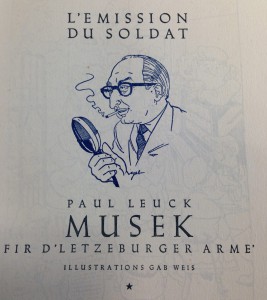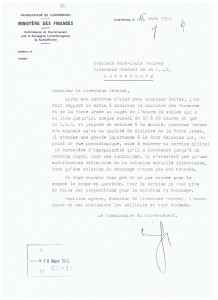Author: Fabio Spirinelli

“We Luxembourgers got our army only after the war”, wrote Paul Leuck in 1954. “The fact is: We have an army, and Radio-Luxembourg has for a long time every saturday a special programme for our boys, who, as soon as they’re ready to cope with the food at the barracks, are sent to the army.”
The programme in question is called “Zaldotestonn” or “Heure du Soldat” (Soldier’s Hour). Since its first episode in October 1944 – only shortly after the liberation of Luxembourg, it was broadcast every Saturday from 10 pm to 11 pm. Why Saturday evening? Because, for Leuck, it was the time of boredom.
Music, conversations, cheerful subjects but also serious topics were the ingredients of the programme. It was destined to the Luxembourgish “boys” not used to the obligatory military service as well as their mothers to lower their fear and concern. Even the government saw it as an important psychological tool to reduce the unpopularity of the military.
Contents
Sources:

Literature:
- LEUCK Paul, L’émission du soldat. Musék fir d’letzeburger Arme’; in: MEHLEN Raymond (ed.), Les Cahiers luxembourgeois, numéro de noël. Luxembourg, 1954, p. 133-148.
